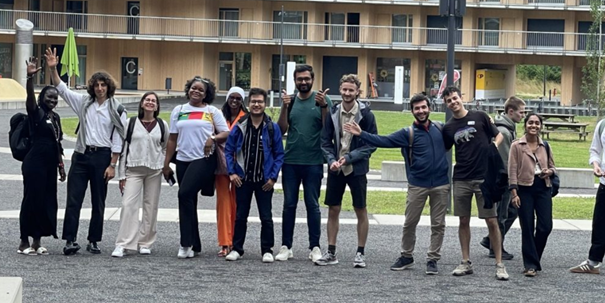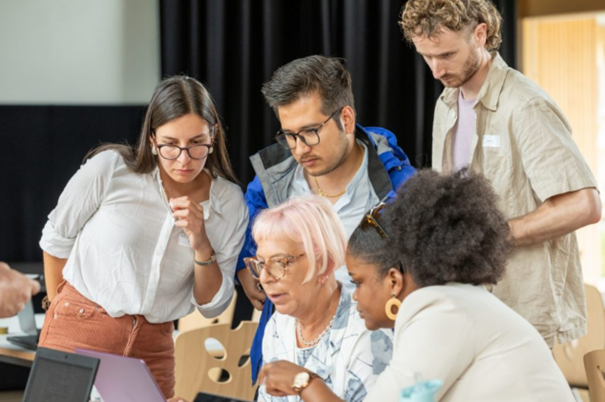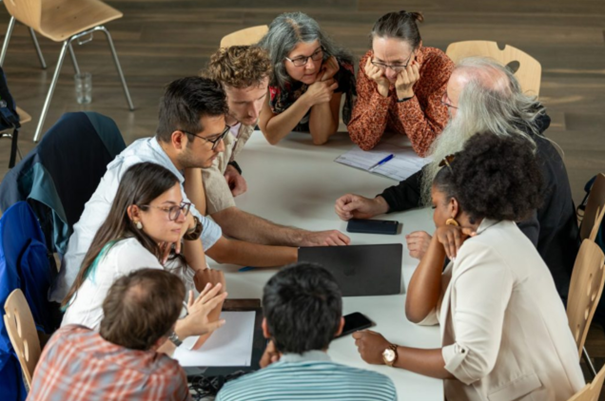Report on the Blended Intensive Program: Healthy Urban Systems (HUS) in Lausanne, Switzerland
July 06, 2024
From July 1 to 6, 2024, I attended the Blended Intensive Programme (BIP) on Healthy Urban Systems (HUS) at the University of Lausanne (UNIL) in Lausanne, Switzerland. This programme aimed to equip students with a comprehensive understanding and tools related to health in urban settings. It combined a 12-week Massive Open Online Course (MOOC) with a concluding week of physical workshops. This final week focused on examining urban environments through various sessions, lectures, and practical exercises, involving participants from diverse academic backgrounds.
Program Structure
MOOC: Healthy Urban Systems – UNIL/Coursera
The MOOC component of the program spanned 12 weeks, with participants engaging in five hours per week of video courses, exercises, and readings. The course was structured into six modules, each lasting two weeks:
- A Multidisciplinary Framework
- Observing, Measuring, and Representing
- Theoretical Frameworks
- Tools for Modeling
- Scenarios Design
- Policies and Governance
Face-to-Face Training at the University of Lausanne
The workshop week in Lausanne focused on consolidating the knowledge acquired from the MOOC, applied to a case study with stakeholder interaction. The program included daily thematic sessions to deepen the understanding and strengthen the practical application of the concepts learned in the MOOC.

Daily Schedule and Activities
The week began on Monday 1 July with an introduction and presentation of local issues by François Bussy, Loubna Laaab and Augustin Fragnières. Furthermore, we were split into four groups. Benoît Biéler and Yves Leyvraz then led a session on identifying and delineating concepts, levels and scales, with entry points and questions presented by Martin Loidl. In the afternoon there was a field visit led by Eduardo Camacho-Hübner, followed by a session on observation using GIS and statistics led by Martin Loidl and Sébastien Gadal. The day ended with a systems approach training session led by some of the previous presenters.
On Tuesday 2 July, the focus was on analysis using GIS and statistics. Dario Spini then presented the Cause-Community LIVES project. In the afternoon, there was a role play facilitated and a session on conceptualising systems approaches.
Wednesday 3 July started with a session on systems synthesis. This was followed by simulations presented by Sandra Perez, Céline Rozenblat, Vincent Laperrière, Martin Loidl and Stéphane Joost. In the afternoon, Francesco Panese discussed participatory approaches and the day ended with a first presentation of our simulations what we did in our group.

Thursday 4 July 2024 was dedicated to the preparation of the scenario design workshop. Sandra Perez, Benjamin Wayens, Céline Rozenblat and Vincent Laperrière facilitated several sessions throughout the day. In the evening, a stakeholder workshop was held to discuss and refine the scenarios.

On Friday, 5 July 2024, the day began with a debriefing discussion of the previous day’s workshop. This was followed by sessions on policy proposals and health impact assessments. In the afternoon, there were presentations on policy and health impact assessments, and on preparing for the return to the population.
The week ended on Saturday 6 July 2024 with a final preparation session for the community return. This was followed by a public presentation and debate. Our group focused on the general problem of heat islands in the commune of Chavannes-près-Renens and on identifying and proposing urban cooling projects, and then the day ended with a debriefing and final evaluation.
Learning Outcomes
The BIP HUS program facilitated a deep understanding of the following areas:
- Enhanced knowledge of various domains involved in Urban Health systems.
- Recognition and valorization of individual skills within an interdisciplinary community.
- Adoption of common knowledge of complex urban systems and their different stages of implementation.
- Utilization of concrete tools to approach urban health complex systems with a group of actors.
Conclusion
The Healthy Urban Systems BIP at the University of Lausanne provided a comprehensive and integrative learning experience, combining online coursework with hands-on practical training. The interaction with local stakeholders and the application of theoretical knowledge to real-life scenarios significantly enriched the learning process. The programme successfully equipped participants with the skills and knowledge necessary to contribute to the development of healthier urban environments. The week concluded with a public presentation and debate, where our group focused on the issue of heat islands in Chavannes-près-Renens and proposed various urban cooling projects, demonstrating the practical application of the programme’s teachings.